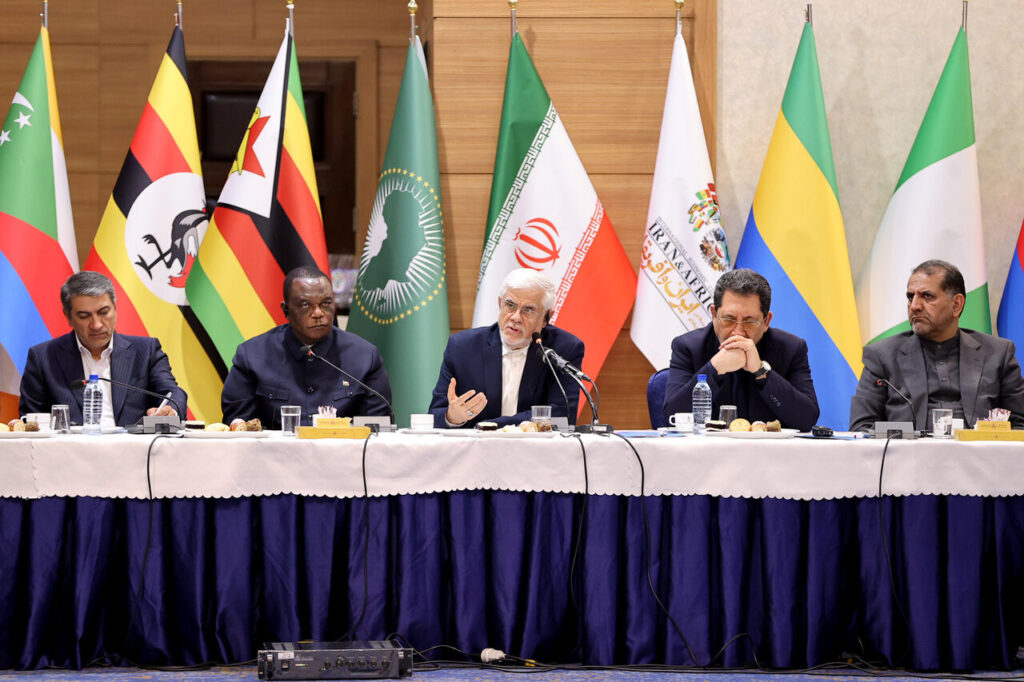TEHRAN – Iranian Vice President Mohammad Reza sharply denounced Western countries for perpetuating “Iranphobia” and “Afrophibia,” adding that these stories were designed to undermine Tehran’s efforts to develop stronger ties with African countries.
Speaking at the 3rd Iran-Africa Economic Cooperation Conference on Monday, AREF explained that such a story would not only distort Iran’s global image, but would also hinder the development of mutually beneficial partnerships.
“Western countries propagate Iranphobia through unfounded claims and contrast to paint the unrealistic pictures of our nation, driven by their own interests,” he declared at a high-level meeting with African representatives in Tehran.
He further criticised the US and European authority for exploiting African resources, treating the continent as “a backyard that must remain under their control.”
AREF emphasized that Africa’s rise as a vital player in global development is directly in line with Iran’s commitment to fostering balanced and equitable relationships.
He called for the removal of bureaucratic and legal barriers that hinder cooperation, and urged African and Iranian officials to use bilateral committees and specialist meetings to streamline the joint initiative.
Reflecting centuries of shared history, he positioned long-standing relationships between Iran and Africa as a solid foundation for expanding cooperation in trade, technology and politics.
Despite facing “unfair and illegal sanctions,” Iran can achieve self-sufficiency in agriculture, industry and advanced technology, meeting the needs of its African partners “without impure motivation.”
Aleph also denounced the Western countries for “poaching Africa’s brightest minds” in order to promote their own technological advancements, ignoring the overall development of the continent.
He praised the previous Iran-Africa Summit for creating a “valuable agreement,” but urged concrete measures, including the proposed Head of State Summit next year, to boost these ties, and praised the previous Iran-Africa Summit.
Reaffirming Iran’s post-revolutionary commitment to Africa, he emphasized that “political cooperation must pave the way for wider cooperation,” and framing the summit as a critical move from a Western-dominated paradigm in favour of multipolar partnerships.
The Iran-Africa Economic Cooperation Council has attracted over 700 delegates from 38 African countries, Tehran and Isfahan.
The event features a ministerial panel on petrochemical, mining, agriculture and healthcare, highlighting Tehran’s willingness to diversify its economic alliance amid Western sanctions.
The representatives began their visit at the Iranian Exposition, the country’s premier trade exhibition, and toured more than 10 industrial facilities in Isfahan.
These visits highlighted sectors that are aligned with the goals of Agenda 2063 in infrastructure development and industrialization, as African countries are seeking affordable, scalable solutions.
Iran further leveraged its advanced technical expertise in oil and gas exploration, a sector essential to Africa’s growth, to attract international partnerships.
Countries such as Zimbabwe, for example, have expressed interest in working with Iran to strengthen the energy sector drawn from Tehran’s cost-effective solutions and technical capabilities.
Additionally, the plan to launch a dedicated delivery line to African ports is aimed at streamlining trade logistics and promoting deeper integration between the Iranian industry and the African market.
Beyond economic initiatives, Iranian outreach embraces a comprehensive partnership model. Historical links, such as support for the South African liberation movement, coupled with recent security dialogue, reflect this holistic approach.
As bilateral trade still constitutes only 3% of Iran’s exports and 1% of its imports, the conference presents a crucial step towards unlocking undeveloped possibilities and positioning Africa as the basis for Tehran’s global economic resilience.

